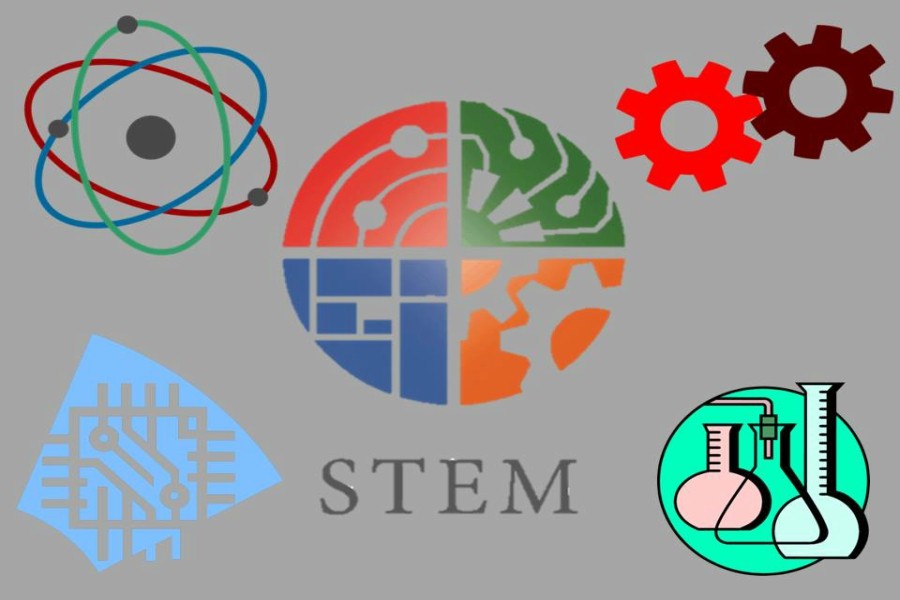STEM covers a variety of fields
IMAGE / Jacob DePottey
When students think of STEM (science, technology, engineering, and mathematics), many picture people like Isaac Newton, Albert Einstein, or even Bill Nye the Science Guy.
But it is important to realize that not all STEM careers are solely based upon mathematics or science, like chemistry and physics.
Many students believe that the careers within it are only based upon these two categories.
And although there are many that are based on those subjects, STEM does not conform to only those two.
People do not have to be just engineers, math teachers, or astrophysicists to be involved in STEM.
Other careers in STEM include political science, archeology, and economics.
These careers may require some math and science knowledge but do not follow the stereotypical view of a STEM career.
With a career in politics, people need to have studied political science.
Political science is the study of politics, the different types of political systems, and political ideologies.
Many careers pertain to political science, like a communications director.
Mr. Matt Williams, Kearsley alumnus, is the communications director for U.S. Sen. Debbie Stabenow, D-Michigan.
“Although political science is involved in my job, it is nothing like your stereotypical STEM job that needs complex physics formulas,” Williams said.
Although it is a type of science, it is less math-based without any needed study of the physics- or chemistry-based sciences.
Other STEM careers may deal with archeology.
Archeology is the study of human history and prehistory through the excavation of sites and analysis of artifacts and other physical remains.
The most important skills to have in this career are writing and communication.
While there is basic math needed within archeology, it certainly is not like the math an engineer deals with.
Junior Nick Niles is surprised that archeology is included within the branches of STEM.
“I never imagined that archeology would be a STEM career,” Niles said. “I guess not all STEM careers are the basic ones everyone thinks of, like a physicist.”
Economics is also included in STEM.
Economics deals with knowledge of the production, consumption, and transfer of wealth.
Economists do use mathematics for their career. However, they also need analytical and writing skills.
For instance, the math level needed for an economist’s daily tasks deals with statistics, which may be hard for some people, but not as complex as, for example, calculus.
Other careers in STEM include a dietitian, nutritionist, and curator.
Senior Brandon Wade knows that STEM is more than just math and science.
“I used to think STEM careers only dealt with math and science, but now that I have grown older and (am) better informed, I’ve realized that there is more to it,” Wade said.
When considering a future career, students should keep an open mind and remember that STEM is not solely based on math and science.
Although STEM may not be for everyone, there are many jobs within its limits that students need to take the time to discover and research.
“Now that I know STEM is not exclusively math and science oriented, I am going to take the time to check out the STEM careers,” Niles said.

Class: Senior
Sports: Tennis
Hobbies/Interests: Math, science, computers
Plans after High School: Attending Michigan State University or Central...





